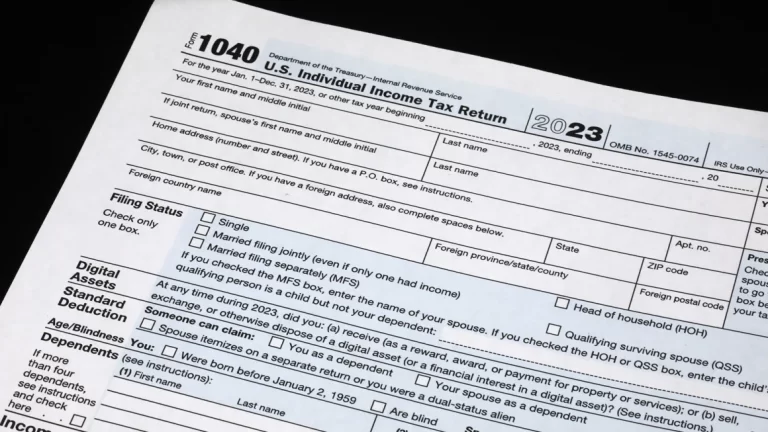It’s Tax Day in the United States for most Americans, and there are still plenty of people racing to file their 2023 income tax returns up until the clock strikes midnight.
“With the April deadline upon us, we’re seeing a flurry of tax returns coming in during the final hours. We’ve already received more than 100 million [returns] and tens of millions more returns are being filed in the final days,” IRS Commissioner Danny Werfel told reporters on Friday.
So if you’re a last-minute filer, you’re in good company — and even more so if you expect a refund. Werfel noted that the agency has already paid out more than $200 billion in refunds through early April. Overall, two in three filers are owed money back, he said.
Here are some last-minute notes and tips to help you in your down-to-the-wire quest to file your federal return or to get an extension to file without incurring financial penalties. (Check your state’s tax revenue department site to see what to be mindful of when doing the same for your state return.)
Today may not be your actual filing deadline: Yes, April 15 is the big kahuna of tax-filing deadlines for most people. But millions of Americans don’t have to file today because they have been granted automatic extensions if, for instance, they live or do business in a federally declared disaster area or were affected by the October 7 Hamas attack on Israel. Or if they live in Massachusetts and Maine, which observe Patriots Day on April 15, or Washington, DC, which marks Emancipation Day on April 16. Americans living abroad automatically get an additional two months to file, until June 15. However, they must pay whatever they still owe the IRS for tax year 2023 by April 15. Members of the US military stationed abroad also get that two-month extension, plus they may qualify for other extensions – including extensions to pay – if they are in a combat zone.
File for an automatic extension: Can’t get your act together in time to file your form 1040 by 11:59 pm tonight? Then request an automatic six-month extension by filling out this form, which will push your filing deadline to October 15, 2024. Werfel estimates 19 million last-minute filers will be doing so.
Without that extension, if you simply file late and you still owe money to the IRS, you will be hit with a failure-to-file penalty plus interest on your outstanding balance.
Pay what you owe today, or at least some of it: Even if you secure an extension to file, most people are required to pay whatever they still owe the IRS for tax year 2023 by April 15.
So do your best to estimate what that amount will be and send in your payment — or at least a partial payment — tonight. Making a payment will help you avoid, or limit, the failure-to-pay penalty and interest you will be charged on your balance due. (Here are some tips for how to estimate what you still owe if you’re not filing a completed return yet.)
If that balance is unmanageable for you, there are options to work out a payment plan with the IRS to reduce your penalties and interest, which otherwise can compound quickly.
Double check your work: To prevent any delays in the processing of your return (or refund if you’re owed one), and to avoid any headache-inducing interactions with the IRS after you file, make sure you’re getting the basics right on your return.
Also make sure you answer the digital assets question on the first page of your 1040 and that you file the correct forms needed if, in fact, you had any taxable transactions with cryptocurrencies like bitcoin.
For instance, check that the following are correct: the spelling of your name, your address, your filing status, your Social Security number and your bank account number if you’re seeking direct deposit for a refund. Also double check your computations. Do all this even if you relied on a tax program or tax professional to prepare your return.
Track your refund: If you’re among the majority of tax filers due a refund and you haven’t received it yet, you can track its status by using the IRS Where’s My Refund? tool online.
The average refund as of early April was $3,011, up $123 from a year ago. The turnaround time for the IRS to send them out can be fast.
“The IRS has done a great job of getting refunds out quickly this year. … In many cases people have been getting refunds in just over a week. That’s important because for many people, these are the biggest checks they see all the year,” Werfel said.


